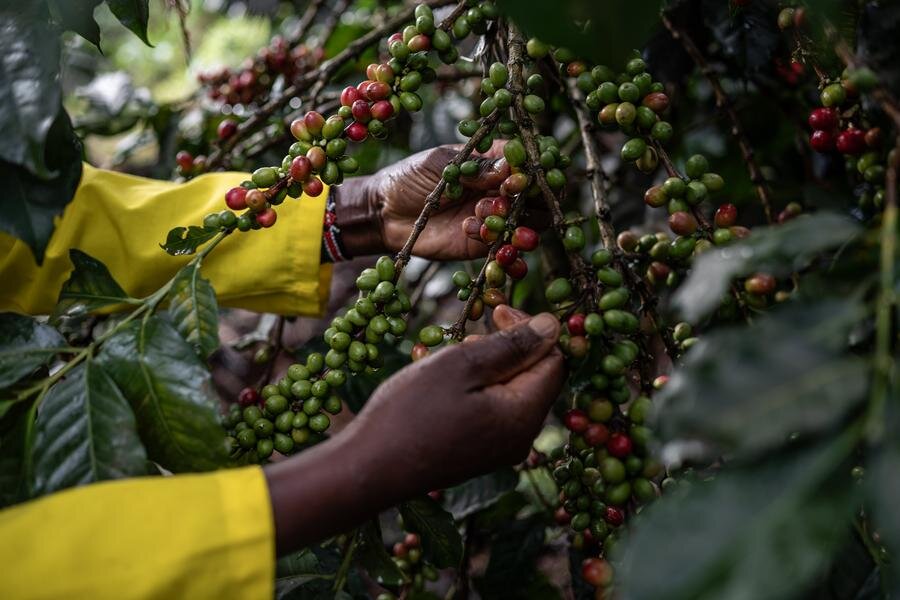The bitterness transforms into a surprising, bright sour flower reminiscent of ripe, juicy tropical fruits. The scent fills the room quickly and cheers up the sensation.
While Eastern Africa, where Kenya is located, shares an inseparable bond with coffee, Ethiopia, the Horn of Africa, is widely welcomed as the birthplace of coffee.
Specialty beans like Kenya AA and Ethiopian Yirgacheffe are loved by coffee lovers around the world and remain extremely popular products in the global market.
An unexpected gift from Africa
Coffee is often considered an unexpected gift from Africa.
Legend has it that 800 AD is in the Kafa region of southern Ethiopia, when a goat herdsman named Kaldi discovered that his goat was unusually energetic and vibrant after consuming red berries from an unfamiliar shrub.
Curious, Kaldi tried berries herself and experienced similar vibrant effects. He shared the discoveries with the local monastery. There, the monks were initially skeptical and eventually discovered that a drink made from these berries helped them to keep them awake during long prayers.
The story, although perhaps apocryphal, is widely accepted as a story of coffee’s origins, and it is believed that the word “coffee” comes from “caffa,” the region where it was first discovered.
Today, coffee remains integral to Ethiopian culture, and expressions such as “Buna Dabo Naw (Coffee Is Our Bread)” show its importance.
Arabica and Robusta are two of the world’s most prominent coffee bean varieties and are thought to have origins in Africa. East Africa’s highland climate provides ideal conditions for growing Arabica beans, while lowland areas in central, western and some East Africa are ideal for growing robusta.
Both varieties play an important role in the global coffee industry, catering to the diverse tastes of consumers and supporting the economy of coffee-producing regions around the world.
The Lake Victoria Crescent region has the right topography and tropical climate, providing an ideal environment for growing Robusta coffee. Characterized by fertile soil and consistent rainfall, the area has long been recognized as a native habitat for wild Robusta coffee trees.
For centuries, wild Robusta coffee trees have thrived in the natural forests of Uganda. Long before the arrival of European colonists, the Bagandan people had already begun to grow coffee.
Today, in traditional coffee-growing areas such as Mount Ergon and the region surrounding the Lwenzoli mountains, several ancient coffee trees still stand, witnessing the country’s lasting coffee heritage.
Reissued by Xinhua News Agency

